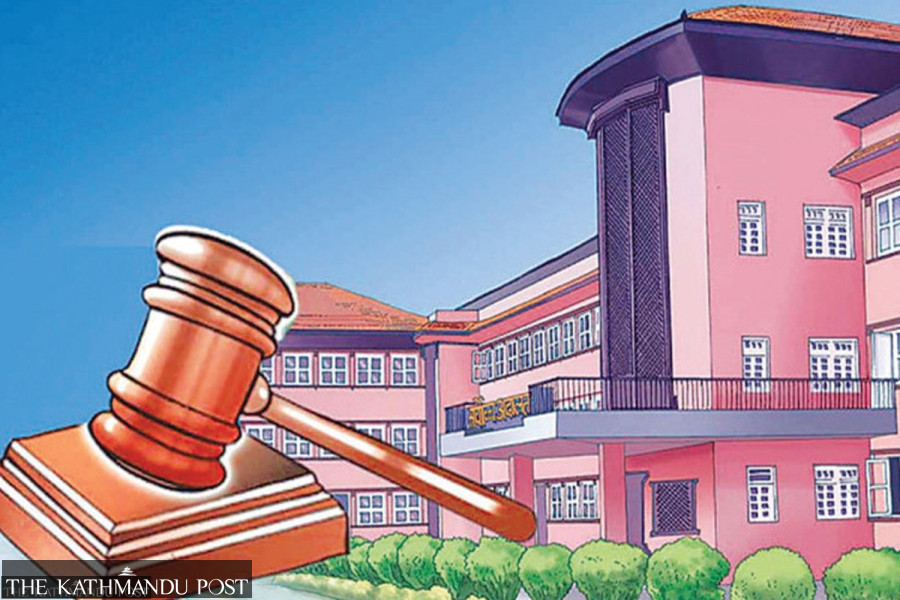National
No more delays in hearing petitions challenging constitutional body appointments, petitioners say
Three years into the appointments, the constitutional bench has been deferring the case without hearing.
Post Report
The constitutional bench of the Supreme Court has marked Wednesday to hear writ petitions challenging the appointment of more than four dozen chairpersons and members of various constitutional commissions.
The weekly cause list has numbered the petitions at two. However, as the constitutional bench has other petitions pending from last week, the petitioners have little hope that the top court will start hearing their cases.
“The court didn’t hear our petitions though they were on top of the cause list on February 28. For more than three years, the court has found some excuse not to hear the petitions,” senior advocate Dinesh Tripathi, one of the petitioners, told the Post.
The Constitutional Council recommended 52 individuals for appointment to various constitutional bodies on December 15, 2020, and May 9, 2021, when CPN-UML chair KP Sharma Oli was the prime minister. Then-President Bidya Devi Bhandari appointed the chair and four commissioners based on the recommendations without a parliamentary hearing. The House of Representatives was then dissolved by the Oli-led government, only to be reinstated by the Supreme Court later.
The council had recommended them after a controversial amendment to the Constitutional Council (Functions, Duties, and Procedures) Act through an ordinance on December 15, 2020.
The recommendations were made by three—the prime minister, the National Assembly chairperson and the chief justice—of the six council members. Although there is a constitutional provision for mandatory parliamentary hearings, Bhandari appointed the commissioners based on the House regulation that a nominee is considered eligible for the nominated position if the parliamentary hearing committee fails to take a decision within 45 days.
Several writ petitions were filed challenging the amendment to the Act through an ordinance by the Oli government and the appointments made by the President. Not just the advocates but then-Speaker Agni Sapkota too moved the top court against the recommendations and subsequent appointments. The head of the legislature initiating a legal battle against the executive head and the head of the state was unprecedented.
After the preliminary hearing, the court sent all the petitions to the constitutional bench. Though the bench issued a show-cause against the defendants, it has yet to start the final hearing.
Article 137 of the constitution envisions a five-member constitutional bench led by the chief justice to mainly settle disputes related to jurisdiction between the centre and the provinces, between provinces, between a province and local units, and between local units. The bench is also entrusted with giving verdicts in cases concerning the interpretation of the constitution. The bench also decides most of the writ petitions that are complex in nature.
The petitioners also allege the court’s indifference to the matter. "It cannot be mere coincidence that the hearing is deferred every time these petitions are put on the cause list," Om Prakash Aryal, another petitioner, told the Post. "I will not be surprised if the court doesn't issue its final verdict by the time all those appointed unconstitutionally retire."
The chairperson and members of the constitutional commissions have six years of service. While there is no retirement age for the office bearers at the National Human Rights Commission, the chiefs and members of other constitutional commissions retire at 65. Some of the office bearers have already retired.
Ram Krishna Timilsina, chairperson of the Inclusive Commission, for instance, has retired after attaining the age of 65. Others too have completed half of their tenure while the court delays the hearing.
"It is the responsibility of the constitutional bench to decide such matters on time. What is the point of passing a verdict after they retire?" said Aryal, who is also the chairperson of the Constitutional Lawyers' Forum.
The petitioners say one reason for the delay in deciding such cases is that the constitutional bench works just once a week, on Wednesdays, unlike in the past, when it heard the cases on Wednesdays and Fridays.
"The petitions will not get priority as long as the chief justice doesn't show urgency," said Aryal.
Similarly, Tripathi says it is worrying that the court is insensitive even in such serious issues. "Such decisions need to be taken then and there," he said. "It is saddening to see lack of judicial proactiveness in the court. Such practice will only exacerbate the lack of trust in the judiciary."




 10.12°C Kathmandu
10.12°C Kathmandu














